Video Transcription:
Nature of the Beast | Planet Finance - Optimized Transcription:
Foreign man-made or other disaster that affects planet Earth adversely may be viewed in the opposite way for those who are trading the markets. So famine, war make the markets go up, and for anybody who's playing the markets and investing, that's more of an opportunity to make money. The commodity traders' nightmare is when they wake up in the morning and the headline in the newspaper says "peace declared."
It will be a journey to a parallel world, a world with a bad reputation. When there's market dislocation, no matter how it's caused, you should try to use it to your advantage. It's like never waste a disaster; almost volatility is what we need. Volatility is our friend; when things are calm, we can't make too much money. But also, a world seemingly detached from reality.
Which part of your career was the most profitable?
This question, 9/11.
9/11 was... That was my best year ever. And I hate that, to be honest. There is a world made up of numbers, a world where you have to be the smartest or the fastest. A world connected by radio waves and fiber optic cables, a world where you can make money if you think you know what the future holds, a world of fear and desire, where you can win. I call this world Planet Finance.
For most inhabitants of planet Earth, myself included, Planet Finance is a complex, invisible, but influential world, and for many people, a world with enormous appeal. Actually, in my pocket here, I have, for example, this is like 250 grams of gold. Okay, I want to sell these, right? So there's this phrase, this kind of motto: Buy low, sell high. That's kind of what you want to try to do, alright? You're given one million; the goal is to increase that amount.
When you look at all these numbers and graphs, it can be quite overwhelming. But there is one very important aspect to think about: trading it, and about trying to make money here. It seems so easy to create wealth, an ever-growing world where capital yields better returns than labor. But this is really where all the magic happens. For me, it's a distant world that only comes into view when the financial markets crash, Dow collapsing its worst seen as they did in 2008 when Investment Bank Lehman Brothers collapsed followed by the European debt crisis, which brought Greece to the brink of ruin, or at the start of the pandemic, after the first lockdown was announced, all markets crashed at once, a unique event in history.
An historic day here on Wall Street because investors are expecting a potential global recession because of the coronavirus. It takes two months before the traders of the New York Stock Exchange are even allowed back on the trading floor, lockdown after lockdown. The whole world holds its breath, and around the globe, shop windows are boarded up for protection against potential looters. But on Planet Finance, soon there is no real worry anymore. On the contrary, the stock prices skyrocket again, and not only those of the luxury brands like always. The market moves and then goes right back to normal. So if you survive the initial shock, markets tend to go back to normal. So while planet Earth is still picking up the pieces, Planet Finance is already making big bucks again. How is that possible? How can the interests of planet Earth and Planet Finance be so different?
Looking for answers, I arrive in the Mansion dotted Woods just above New York City. Most of the inhabitants of Planet Finance aren't exactly eager to provide insights into their world. I wrote two books sitting here, is it going good place to ride? We don't want to tell the truth about some of the pricing structures here and how they impact the real world, and you know, that kind of stuff. My trader does want to talk; he spent decades on the trading floor. But now has his doubts about the way Planet Finance functions. Plus, he has already made his pile, so he can speak freely to me.
We create money out of pieces of paper, worthless pieces of paper. Worthless, but you know, the world decided that they had value, and so we could, we found ways to create the, you know, make a living from that stuff. You know, it's just a construct so that people can make money. I tell these stories and I laugh about them, and everybody's eyes roll back into their sockets. And then, you know, after a minute and a half, "This is boring, I gotta get out of here." It doesn't hold any interest for anybody. Nobody gives a... except for Michael. He knows the truth about all this stuff as well as I do. You know, he's really the guy who should interview. I mean, he's amazing, he's a very bright guy. Michael, that's Michael Marks, another former floor trader. He turned his back on Wall Street a long time ago.
The nature of Wall Street is every man for himself, kill or be killed. You know, eat or be eaten. I mean, that's the nature of the beast. And so, that wasn't something that resonated with me enough to stay there. The nature of the beast, to understand what that is and what Planet Finance has become today, it's important to him to first explain how things used to be on the trading floor. Now let's see here we go, is that upside down? So this dates back to the mid-'70s and before, and these were all around the side of the trading floor. Every transaction was registered there. There were two board boys, as they were called, for each board, one on the left side and one on the right side. You needed one right-handed and one left-handed because they were, you know, writing as quickly as possible. The Exchange had a reputation of trading everything; there was silver coins, there was imported boneless beef, and there was a Cotton Exchange, there was a cocoa exchange, there was a coffee and sugar exchange, and all of these exchanges had been set up maybe a hundred years ago as a marketplace for merchants in those particular businesses to meet and buy and sell. So it was a marketplace where buyers and sellers would meet. In the 1970s, their bids were still chalked onto the so-called book.
What you see here is the book, this is the book, yeah, this was the pre-electronic book, you know, yeah, yeah. A blackboard on the left-hand side, the amounts and which traders had sold, and on the right-hand side, which traders on the floor had bought and at what price. So you could read the price action by being on the floor. You saw orders coming in and out, you would see somebody start to buy, for example, and you might know from his demeanor, is this going to be an order to buy one contract or a thousand contracts? You know, or this guy is always a big buyer or a big seller. So just by being there, even though if you did not see the orders, you still had a sense of the flow and the feel, and you would hear it and smell it.
It was in the mid-'70s when New York was on the verge of bankruptcy, so the streets were dirty, there were, you know, drug dealers all around and whatnot. And the New York mark was one of those about 10 blocks north of
the World Trade Center. Then you would walk into this magnificent building, five stories high, and there were two enormous doors, maybe 12 feet high, that were pretty soundproof, so on the outside, you didn't hear much, and it was almost like walking into the Coliseum. And the doors would open, and then you would be blasted by this roar of noise and sounds and smells. And I couldn't stop smiling when I walked in. I had no idea what it was or how it worked or whatever it was. It grabbed me. There's no code, so if things were quiet, they'd be doing the New York Times crossword puzzle in the ring. They'd be eating their lunch and pizza in the ring. They'd be smoking on the floor. There'd be fistfights, and you're sweating, you know, you're rubbing elbows, you're getting stabbed by pencils, and you're getting spit on. On Planet Finance, traders are already a special breed, but floor traders can even be seen as a dying breed. Michael Marks has relocated to the neighborhood where he once grew up. The only ex-colleague he still regularly sees is Dan Dicker. So where's your car? There it is. That is your driveway? Yeah, okay, good, yeah. The one? No, no, I've got that house, too. Oh, really? Yeah, it's under construction, but I needed a little more room here, so yeah. Oh, buy another house. Plan, a good plan. They did well for themselves on the trading floor and now look back with a mix of slight nostalgia and diabolical glee.
I would go into the World Trade Center, and I would walk up the 10 blocks to get to the exchange. One morning, I'm walking up, and everybody on the street is looking at the towers. You know, I'm walking in the opposite direction, they're all looking at the towers, and I look, and there's a guy climbing up the side of the towers. So I get to the exchange, and of course, everybody's looking. And what do you think they're doing? They're betting. Yeah, how many floors will go before you fall? Yes, it's nice, they're betting whether he's going to make it or not, what floor is he gonna fall off from? Yeah, that's classic, that is perfect floor trader stuff, yeah, exactly, exactly.
Can I describe you well as being a small trader? Oh, I was minuscule. I was the smallest of the small for this, and it was very, very, very, uh, stressful, um, very exciting, uh, very lucrative, and, um, and scary all the same time.
In what sense scary? I always use this analogy, and if you can't put this on TV, I understand. But imagine being a man in your 30s walking into a place, dropping your shorts, taking your testicles out, and sticking them on a table, taking a cleaver, and handing them to the next guy, and daring him to cut them off before you can yank them back. Every day, that's what it was like.
I think part of the allure was no one understood when you came in from outside what is this? How does it work? How do you do this? There was, it was pure capitalism. It was absolutely as pure as form, you know, it was the Turkish bazaar, you know, come alive, come one, come all, everyone participates. It looks like a sporting event with money. Apparently, that's what it takes to determine the price of a product.
Meanwhile, Michael Marks was elected chairman of the exchange. He saw the opportunity of starting a new market, a market for a product of which the price up till then had been established in an obscure way. A market that would go on to determine the global price of crude oil and one that would even grow into one of the biggest markets in the world. How do you start a new market? When you start out, you don't know, it's almost like a chicken and egg. I'll use it if you use it, you know, you'll use it if I use it, but how do we know that each of us is going to use it?
In the '50s and the '60s, most markets in the world were managed and price-controlled. Oil had always been a monopoly or an oligopoly, which meant that there was one person or a group of people who were controlling the production and setting the price. They would meet in a tent, I'm exaggerating, but all the producing countries would meet, and they would powwow, and then someone would emerge from the tent and say, "The price of crude oil is now eight, or the price of crude oil is now ten." So that was how prices were set. It wasn't till well into the 1970s the price of oil wasn't determined by supply and demand but by what the powerful oil companies and oil-producing countries asked for it.
So, Michael Marks thinks there has to be another way to do this for a product that's in such high demand around the world. I just felt that oil should be priced in a free-market environment rather than by a cartel, and it seemed obvious to me. I couldn't understand why others didn't see it that way. I mean, a couple of people who I knew said, "It'll never work. The major oil companies will come in and they'll kill it."
After I think when the shah was overthrown in '79, that's when things really, um, got out of control. That created a big disruption in supply. The unrest in the Middle East makes one thing clear: uncertainty about the supply of crude oil means uncertainty about the price. Those kinds of things created more risk, and that's the essence of what a futures market is. It's great to use it for speculation, but the whole idea is to offset risk. If there's no risk, there's no reason for a futures market. Without risk, you can't start a market.
S isn't going to sell the oil himself but starts a market for so-called oil futures to be bought and sold on the trading floor. A future is a bet on the price of crude oil going up or down in the future. From now on, the global price of oil is determined through speculation. The atmosphere on the floor of the exchange was, you know, excitement, right? You know, thrilling, you know, the markets up, uh, opportunities to make money.
But for me, that's when I realized the consequences of it when things were getting supercharged, uh, yeah, as they are in the markets today, you know, in some form. There's a disconnect between what may be happening in the stock market and the grain markets, uh, for Wall Street, and what may be happening on the ground. That's kind of a joke of all these financial markets, right? They're supposed to be these sort of value creators, right? We use these markets so they're going to assign value to things that we really don't have any idea of what their values are, and that happens a lot. But what also happens a lot is the other thing where, you know, the monster in the machine sort of gets away from the purpose that it was created for. Stir in the machine, traders
have to make use of any unexpected event that occurs.
And Dracula, I mean, how could you not like them? He is doing that on the Chicago trading floor, is oil trader Bob Iaccino. Whether it's the Russian currency crisis or 9/11, the London train bombings, the Spanish train bombings, volatility is what we need as active investors and active traders. During the attacks of 9/11, the volatility was something I still haven't seen either before nor since. So, for people who don't understand what volatility is, the very simple explanation of volatility is it's an expanding or a contracting of price ranges. When volatility expands, the price ranges of that asset expand. That's what causes volatility to expand. When volatility contracts, it's the same thing. Volatility has expanded in spurts in periods of time. So, there is a lot of volatility during an unexpected event, the prices go all over the place, and that gives us savvy traders a chance to make a lot of money.
When things are calm, we can't make too much money. I was on the floor when 9/11 happened. I was in the interest rate pit. The interest rate pit was one of the most active. When the planes first hit, and we had banks of phones in front of us, and the phone rang, and then the other phone rang, and then the other phone rang. It was very common for us to have two phones at once on the trading floor. I would have four, six. I would have two in each hand, and I'd be going like this, yelling at someone to pick up the other phone. People just screaming, "What's going on?"
It's interesting when you hear people say, "What's going on?" when they can actually see what's going on. There's a weird psychological thing that wants they want it to be explained as to why it's happening, but they're saying, "What's happening," like you can see in front of you what's happening. But if I tell you why it's happening, how is that going to change what's happening? That's kind of a shortcoming of a lot of traders is they ask what I consider to be the weakest question in the hierarchy of questions when you're an investor, which is why. Sitting there wondering why something's happening, and while you're wondering why, it's still happening. So, you have to react. So, you are a what person. I'm a what person. Yes, why comes later. Why is a hobby. Why is fun for me, but what is what I do for a living?
Our traders survived 20 years on the Chicago trading floor by not asking why something is happening on the market. Meanwhile, Planet Finance is growing ever faster in value than the real economy, and Planet Finance is starting to bulge at the seams. I said this is what a commodity retired commodity trader does, feeding the birds. See, I've made the transition from what? What do you call that? Planet Finance, the planet Earth. Thank you.
As it turns out, Michael Marks got out right before the big market expansion. Floor trading was very lucrative and very profitable. You had to be a member of the exchange to buy and sell, so it was a club. A club, yes. You know, a club, and where you like together owners of the club or yes, yep. You know, it was a club, a very, uh, very interesting club. But yeah, it was like a club, and just being a member of the clubhouse was a very big deal in the club. Until the beginning of this century, only.
The exchange memberships transitioned from being a club to being publicly traded on the stock market. Former members were compelled to sell their memberships as the exchanges became companies with shares. This shift marked a significant change in the financial landscape, with memberships once valued at $56,000 being sold for millions of dollars. It was akin to hitting the lottery for many traders, with hundreds of members experiencing sudden wealth.
The move towards electronic trading around the turn of the century further transformed exchanges globally. Millions of people gained access to trading through computer platforms and apps, expanding Planet Finance beyond New York and Chicago to financial centers worldwide, from Frankfurt to Tokyo. The transition from traditional floor trading to electronic trading symbolized the evolving nature of financial markets.
Today, trading occurs in data centers, where machines execute transactions in milliseconds. High-speed networks connect exchanges worldwide, enabling lightning-fast trades. The physical distance between exchanges has become negligible, with time and place merging into one interconnected system. Super-fast connections ensure that traders can react swiftly to market movements, with milliseconds potentially translating into billions of dollars in profits or losses.
Traders, whether human or algorithmic, face constant pressure in this fast-paced environment. Emotions like euphoria, greed, and fear still play a role, even as algorithms dominate trading. Understanding market dynamics and maintaining calm under pressure are essential skills for traders to navigate the complexities of Planet Finance.
Neuroscientists and psychologists work with traders to manage emotions and optimize performance. Trading and investing are compared to a never-ending game, where uncertainty and ambiguity reign. Traders must assess market conditions while acknowledging the limits of their knowledge, constantly adjusting strategies to adapt to changing circumstances.
In the next episodes, we'll explore how risk drives the business of finance and how individuals and institutions navigate this uncertain terrain. We'll delve into the personal and professional aspects of risk-taking, offering insights into the world of Planet Finance.

























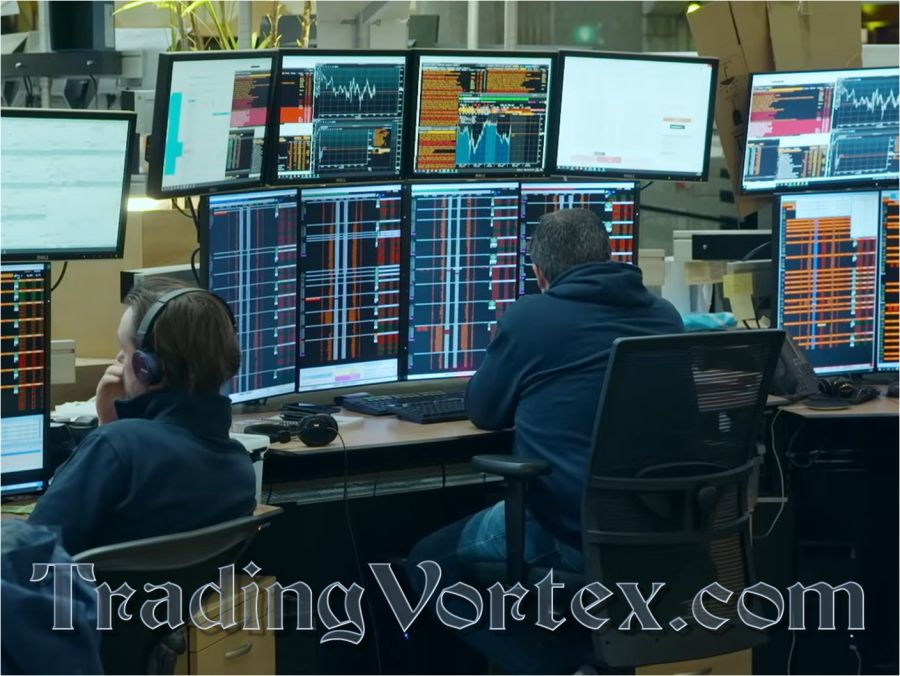


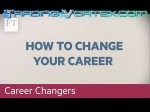
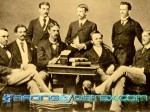
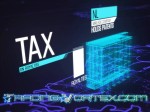
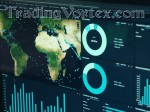
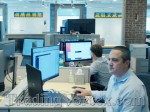
 TradingVortex.com® 2019 © All Rights Reserved.
TradingVortex.com® 2019 © All Rights Reserved.